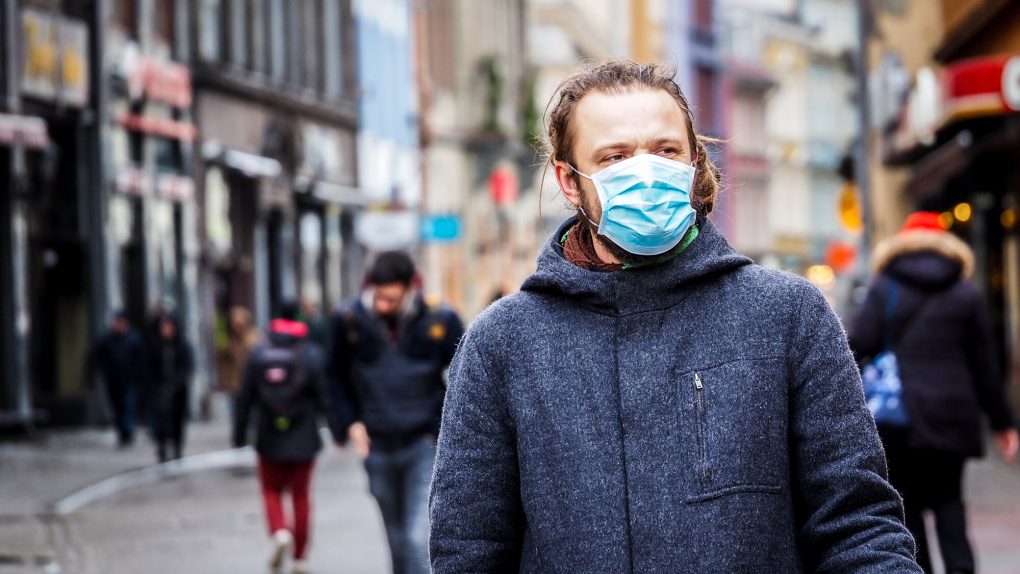- A company announced clinical trial results for a new type of medicine developed specifically to treat the novel coronavirus.
- Eli Lilly says the data it has on hand proves that its monoclonal antibodies can significantly reduce viral loads in patients recovering at home, ameliorate symptoms a few days after infection, and prevent visits to the hospital.
- Eli Lilly will seek approval from regulators for a single monoclonal antibody and a combination of two monoclonal antibodies. These compounds are derived from patients who survived COVID-19 early in the pandemic, from America and China.
Eli Lilly’s announcement on October 7th might mark a pivotal moment in the world’s battle against the novel coronavirus.
The pharmaceutical company announced that its brand new drugs developed for COVID-19 patients are effective and that it’s already seeking regulatory approval, including emergency use authorization. They’re not vaccines, although they might offer limited protection against infection as well. They are not repurposed medications like remdesivir and dexamethasone, although the concept has been used before.
Eli Lilly developed two monoclonal antibodies that can be administered separately or in combination (BLAZE 1 trial). These are artificial antibodies derived from early COVID-19 patients and act similarly to the antibodies from plasma transfusions. From that point of view, Eli Lilly’s drug isn’t completely new, as it’s the kind of therapy that’s been tried before. But if Eli Lilly’s drugs work, there’s hope for plenty of other monoclonal antibodies in clinical trials. Regeneron’s experimental drug that President Trump received after being diagnosed is also a drug that features two different monoclonal antibodies.
The antibodies target the spike protein of the coronavirus, blocking it from entering cells, where the virus replicates. Monoclonal antibodies can reduce the viral loads and hasten recovery in infected people, and that’s what Eli Lilly says its drugs do. The circulating antibodies would also provide temporary protection, just like vaccines would. The difference is that vaccines would teach the body to create its own antibodies when necessary, whereas monoclonal drugs only work while they’re patrolling the body via the bloodstream.
Eli Lilly posted new results for its monoclonal antibody efforts on Wednesday, revealing the results of a Phase 2 trial involving a combination of two drugs, including LY-CoV555 (bamlanivimab) and LY-CoV016 (etesevimab). The company licensed the two compounds from two partners, and the antibodies were synthesized from early COVID-19 survivors in the US and China, respectively.
The company gave a 2,800mg combination of the two antibodies to 112 COVID-19 patients and used a placebo group of 156 infected people. All of the patients were not hospitalized for treatment. Eli Lilly found that the drug reduced the viral load significantly on day 11. But most people in the placebo group also “demonstrated near-complete viral clearance by day 11.” However, the new drug reduced the viral load even earlier, in days 3 and 7. It’s early in the infection that the viral load is the highest. Only 3% of the cohort that received the combination therapy had a high viral load at day 7, compared to nearly 21% for the placebo group.
The researchers also assessed the two groups’ symptomatology, finding that the combination therapy reduced the severity of symptoms. The company says that improvement in symptoms was observed as early as three days after the treatment, and was consistent “in magnitude and timing” with the single monoclonal antibody therapy seen in trials of LY-CoV555.
The third endpoint of the study was hospitalizations and ER visits. The combination therapy resulted in 0.9% visits to the hospital, compared to 5.8% for the control group. The difference might be minor, but it’s still statistically relevant.
Eli Lilly says the therapy has generally been well-tolerated, with no serious side events.
The company has submitted an initial request for emergency use authorization (EUA) for the LY-CoV555 therapy in higher-risk patients. It will submit a EUA in November for the combination therapy, pending clinical trial enrollment. The company says it will seek final approval as early as the second quarter of 2021.
That’s assuming everything goes well. No matter how promising the Eli Lilly therapies sound, there’s no guarantee Phase 3 trials will confirm these findings, or that regulators will approve them. Eli Lilly will continue various trials involving the two monoclonal drugs, and the resulting combination:
- BLAZE 1 – a confirmatory cohort of higher-risk patients diagnosed with mild-to-moderate COVID-19; lower-dose tests; alternative delivery options
- BLAZE 2 – Phase 3 of LY-CoV555 in the prevention of coronavirus in residents and staff at long-term care facilities
- ACTIV-2 and ACTIV-3 – Ly-CoV555 tested in NIH studies of ambulatory and hospitalized patients.
The full research for the clinical trials will be available in medical journals in the future.
The company says it can provide as many as one million 700mg doses of LY-CoV555 monotherapy by the end of the year, pending approval. Of those, 100,000 are available this month. For the combination therapy, Eli Lilly can make 50,000 doses this year, and the supply can increase “substantially” next year.








